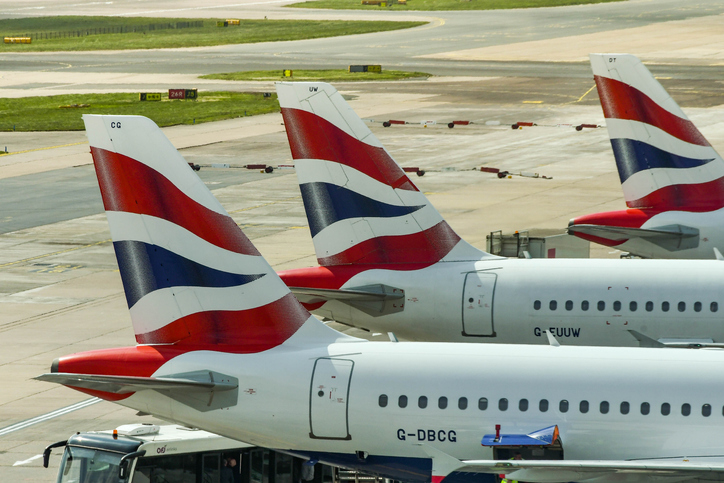ii view: IAG raising billions to see out pandemic
After a record operating loss and the need to raise billions, should investors board or exit?
3rd August 2020 11:58
by Keith Bowman from interactive investor
After a record operating loss and the need to raise billions, should investors board or exit?

Fundraising and second-quarter results to 30 June 2020
- Looking to raise up to €2.75 billion from shareholders
- Operating loss of €1.365 billion excluding exceptional items
- Total loss including exceptional items of €2.18 billion
- Cash liquidity of €8.1 billion
Chief executive Willie Walsh said:
"We operated 1,875 cargo-only flights using passenger aircraft in quarter two which was an important cash contributor to the Group. All IAG airlines made substantial losses. As a result of government travel restrictions, quarter two passenger traffic fell by 98.4% on a capacity reduction in the quarter of 95.3%. We have seen evidence that demand recovers when government restrictions are lifted.
"We continue to expect that it will take until at least 2023 for passenger demand to recover to 2019 levels. IAG continues to take action to strengthen its balance sheet and liquidity position including more than halving its operating cash costs and significantly reducing its capital spending. Subject to shareholder approval at our AGM on September 8, IAG will undertake a capital increase of up to €2.75 billion which will enhance the Group's resilience, balance sheet and liquidity position."
ii round-up:
British Airways and Iberia owner IAG (LSE:IAG) is planning to raise up to €2.75 billion (£2.48 billion) in order to strengthen its finances and hopefully see out the pandemic.
The shareholder fundraising is being supported by its biggest investor Qatar Airways, which owns 25% of IAG, and is subject to shareholder approval at its AGM on 8 September.
IAG shares fell by more than 6% following the announcement and are down by more than 70% year-to-date. Rival flag carrier Air France-KLM (EURONEXT:AF) has seen its shares fall by over 65% in 2020, while shares for budget airlines Ryanair (LSE:RYA) and easyJet (LSE:EZJ) are down by 29% and 65% respectively.
Airline shares have been under particular pressure since the UK government outlined quarantine measures for UK travellers returning from Spain just over a week ago. IAG and easyJet shares are both down over 15% since late July alone.
IAG had hoped to be flying at around half of its capacity by July, but is instead only managing around a fifth or 20%.
IAG, which also owns Air Lingus, Level and Vueling, reported a record quarterly loss of over €1.3 billion in the quarter ending late June. When including exceptional costs to retire early its fleet of less fuel-efficient Boeing (NYSE:BA) 747s and Airbus (EURONEXT:AIR) A340s, it made a total loss of over €2.1 billion.
It had total funding liquidity of €8.1 billion as of the end of June. Measures to combat Covid-19 and conserve cash have included proposed staff lay-offs, suspending the dividend payment, and deferring the delivery of 68 new aircraft.
IAG management is currently in negotiations regarding its November 2019 takeover of Spanish international carrier Air Europa. It is rumoured to be trying to lower the previously agreed €1 billion purchase price by several hundred million euros given Covid-19.
Chief executive Willie Walsh is due to retire as of the September AGM following a previous postponement made in order to help see the airline through the pandemic.
ii view:
IAG has transformed itself from the UK’s national airline to a multi-branded operator. A low-cost business model has been adopted for two of its brands, while cost reduction now features across the industry thanks to the success of rivals such as easyJet and Ryanair.
Investors in any airline company must be prepared for an often-turbulent ride. Volatile fuel costs, the threat of terrorism and industrial action by staff can all hit hard. But the Covid-19 pandemic has taken the hit to the industry to a new level, grounding aircraft fleets for months.
For investors, executive experience of managing a crisis meant that IAG has entered the pandemic with a solid balance sheet. Swift action has also been taken to conserve cash. April and May’s operating costs were cut from €440 million to €200 million per week, and a fundraising will strengthen the group’s finances. But despite a savaging of the share price year-to-date, the degree of uncertainty remains huge, with IAG shares remaining a long-term pick for brave investors.
Positives:
- Strong and diverse brands
- Raising cash to strengthen finances
Negatives:
- Major uncertainty regarding Covid-19, lockdowns and customer demand
- Dividend payment removed
The average rating of stock market analysts:
Buy
These articles are provided for information purposes only. Occasionally, an opinion about whether to buy or sell a specific investment may be provided by third parties. The content is not intended to be a personal recommendation to buy or sell any financial instrument or product, or to adopt any investment strategy as it is not provided based on an assessment of your investing knowledge and experience, your financial situation or your investment objectives. The value of your investments, and the income derived from them, may go down as well as up. You may not get back all the money that you invest. The investments referred to in this article may not be suitable for all investors, and if in doubt, an investor should seek advice from a qualified investment adviser.
Full performance can be found on the company or index summary page on the interactive investor website. Simply click on the company's or index name highlighted in the article.